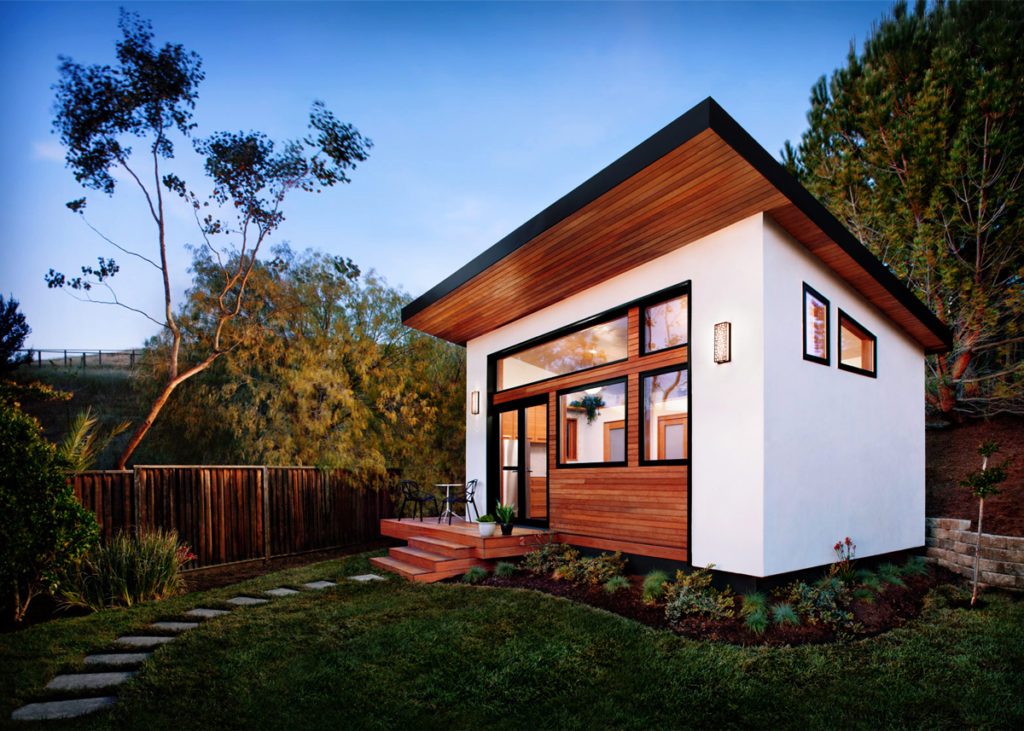This past summer, Farmington introduced one of the most innovative Accessory Dwelling Unit (ADU) ordinances in the state. For starters, the ordinance allows property owners to choose between building an internal ADU, such as a basement apartment, or a detached ADU, like a backyard cottage. By permitting homeowners to build backyard cottages, Farmington is already ahead of many cities in Utah. However, what truly sets their ordinance apart is that it allows property owners to sell their detached ADUs, a noticeable shift towards property rights and housing freedom.
A Backyard Cottage You Can Buy (Or Sell)
Imagine you own a property and want to build a backyard cottage for a relative to live in. You save up the money, find a contractor, and build the cottage. After a few years, your relative moves out and finds a house of their own. Now, you’re faced with a decision: do you convert the cottage into an office, or do you rent it out? If you live in Farmington, however, you have a third option — selling the detached ADU as its own starter home.

Who Would Sell an ADU?
At first glance, selling a detached ADU might seem unusual. After all, many homeowners build ADUs to provide housing for family members or to earn extra income from renters. However, the option to sell opens up new possibilities, especially in a tight housing market like Utah’s. For those looking to downsize or lighten their financial burden with a lump sum payment, selling a detached ADU could offer a practical solution. It also provides a valuable opportunity for first-time homebuyers, who may be priced out of traditional single-family homes but could afford a smaller, standalone unit. Lastly, not everyone wants to deal with all of the maintenance and managerial tasks associated with renting out property.
A Step Toward Solving the Housing Crisis
Farmington’s ADU ordinance offers a creative approach to addressing the state’s housing shortage. By allowing homeowners to build and sell detached units, the city is expanding the range of affordable homes without the need for subsidies. This could help increase housing supply while only making small, incremental changes to a neighborhood. More importantly, it empowers property owners to make decisions that benefit their families and their finances, while simultaneously providing more affordable housing options for others.
How Does it Work?
The logistics of selling a backyard cottage would come with certain challenges. For instance, issues like parking access and utilities would need to be addressed. An easement would likely be required to ensure that the owners of the backyard cottage have permanent access. Financing may also be a concern, as such a change to the original property will likely trigger the need to refinance. Despite these concerns, Farmington’s ordinance is an important first step, as it opens the door for people to start exploring the concept.
Will Other Cities Take Note?
Farmington’s decision to allow the sale of detached ADUs, referred to as “Subordinate Single Family dwellings,” sets a precedent that other Utah cities should consider. With housing affordability still a major concern, innovative solutions like this could help ease some of the pressure. If more cities adopt similar ordinances, it could lead to a broader shift in housing policy — emphasizing flexibility, individual choice, and efficient land use. Although there are logistical challenges to address, the potential benefits for both homeowners and prospective buyers make Farmington’s approach to ADUs deserving of serious consideration.





